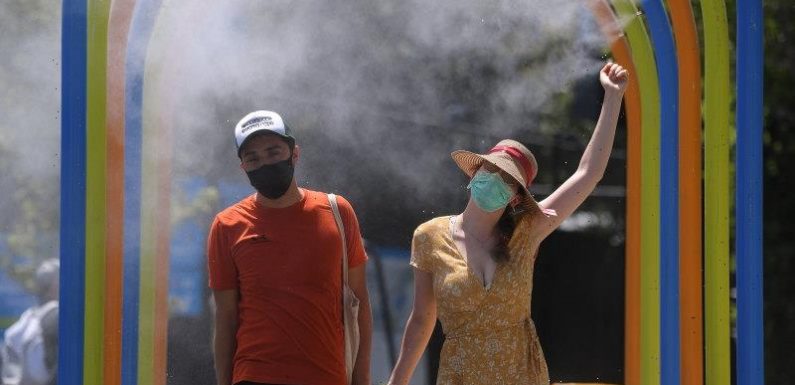
If you thought this past January seemed a little hotter than previous years, the statistics prove you right, with the month smashing decades-old weather records.
Melburnians have gone through a month of unbearably sticky nights thanks to a mean minimum temperature – the coldest it gets at night – of 18.3 degrees, the warmest average minimum for any month since records began in 1855. January’s figure beat the previous record by about 4 degrees.
Finding somewhere to cool down has been important, as Ines Venencie and Daniel Suarez found out at the tennis.Credit:Eddie Jim
According to the Bureau of Meteorology, the city also equalled a 1974 record for the most days in a month above 30 degrees, with 17.
The hottest day of the month for Melbourne, measured at Olympic Park, was January 1 with a top of 37.1 degrees and a minimum of 20.5. The hottest minimum temperature for the city was recorded on January 28, at 21.7 degrees.
The lowest maximum temperature was recorded on January 8 at 19.7 degrees, while the lowest minimum temperature was recorded on January 20, when it got down to 12.9.
Humidity in Melbourne was also at record levels through January, with “dew point” temperatures – which show how much moisture is in the air – exceeding previous monthly records by substantial margins.
Victoria’s north-east also broke some records, notching up some of the highest rainfalls on record in January.
Rutherglen and Wodonga both recorded their wettest ever month with 274 millimetres of rainfall and 269 millimetres, respectively, which the bureau said was approximately six to seven times the monthly average of 45 millimetres.
Albury also recorded its most rainfall in a single month with 306 millimetres.
Melbourne Olympic Park saw its highest level of rainfall through the month on January 29, with 38.6 millimetres.
More to come.
Most Viewed in National
From our partners
Source: Read Full Article
